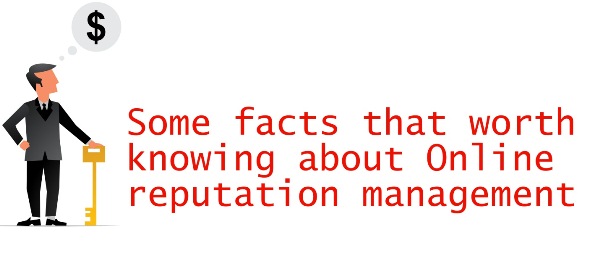Take off your business-owner hat, or your sales-and-marketing chapeau, and put your consumer cap on for a moment. When you are looking for the best Vietnamese restaurant in town for when your pho-obsessed sister visits, or shopping around for a new HVAC repair company, do you read reviews? Sure you do. You want to know if the pho is hot, fresh and served with ample basil and bean sprouts (not to mention with a smile from your waitress). It’s essential to feel confident that the guy in charge of literally putting a roof over your head seems professional, experienced, and trustworthy.
While browsing these reviews, you have probably come across negative one-star harangues that read like personal vendettas. You might have cringed at the unprofessional responses. Or maybe you’ve even watched as an entire PR nightmare played out on platforms like Yelp or Facebook.
Also, Read:
It is certainly understandable if you’ve shied away from even listing your small business on these sites, or if you have listed them but rarely get up the courage to read, let alone respond to, online reviews. If that describes you, read on for a few tips on how review management can really boost your business, and for less hassle and effort than you may think.
Are Reviews Really an Important Part of Your SEO Strategy?
You bet they are. In a 2018 survey of the top local search ranking factors, reviews accounted for over 15%. That’s a hefty rise from the 13% share of the pie that reviews received in 2017.
The good news is that you don’t have to be a local search expert or a digital marketing maven to do reviews right. All it takes is a little training and the sincere desire to connect with your customers — well, and sometimes a few deep, relaxing breaths.
“SEO often seems like an incredibly difficult undertaking for small- to medium-sized businesses and it’s probably best to outsource SEO and digital marketing needs,” explains Zach Hoffman. He’s the founder, President, and CEO of Exults, which provides internet marketing in Ft. Lauderdale. “However, there are plenty of tasks that hands-on business owners can undertake themselves that will inform — and improve — the overall efforts of their digital marketing team. One of the most important is monitoring and responding to online reviews.”
Ready to get started? Let’s go!
Foster a Complaint-Friendly Atmosphere
The first step to review management is avoiding negative ones in the first place, although it’s not the end of the world if you do get a nastygram. (More on that later.) Make your business complaint-friendly; do everything you can to resolve customer issues in the moment and on the spot. Post signage and train employees to monitor customer satisfaction by asking if everything was up to snuff.
Next, be sure to monitor social media channels, as well as direct communication through your website and email, to catch any complaints that cropped up after the customer left the premises.
You know your business best, so we won’t presume to tell you how to “make things right” — only that you should do all you can to achieve that goal before the unhappy patron takes to Yelp or elsewhere to spout off.
It’s OK (Even Good!) to Get a Negative Review
Believe it or not, negative reviews can actually be good for your SEO. How? Well, firstly, they increase the overall number of reviews, which triggers those ranking signals for Google. From a review-reader standpoint, they can also boost your brand’s authenticity. A business with nothing but glowing 5-star reviews is probably buying positive reviews, deleting negative ones, or both.
Additionally, garnering a review that’s less-than-stellar gives you the opportunity to respond and make things right — in full view of the public eye. A company’s angry retort to getting panned is sure to turn off potential customers, and the opposite is true, too. If the business owner or representative is apologetic, professional, and genuinely appears to care, it shows.
Know What to Do — and What Not To
Got a negative review that’s caused your blood pressure to spike? Here’s what to do:
- Take a deep breath. If you’re too upset or angry to respond calmly, wait it out. It’s best to respond within 24 hours, but that still gives you plenty of time to sleep on it or ask for help.
- Thank the customer for their honest feedback and apologize for whatever made their experience bad.
- Ask for more details, if necessary, such as date and time of their visit. At this point, it might be best to take the convo private. Offer them the direct contact info of someone who can help.
- Offer to make it up to them with a discount, freebie, or another lagniappe if they give your business another try.
Equally important is understanding what not to do in a review response. For the most part, it has to do with keeping your cool and being professional. To wit:
- Don’t argue or contradict them. You won’t win a shouting match, and it will make you look petty or defensive.
- Do not blame, belittle, or insult the customer in any way.
- Don’t make excuses or blather on about why the incident occurred. Keep responses short and sweet.
- Do not forget that this is a public forum. Carefully consider the impact of your words before hitting the button that makes them go live.
Final Thoughts
We get it; checking out your customers’ brutally honest reviews can be scary! But it can also be rewarding – and, perhaps most importantly of all, a genuine opportunity to grow your business and your customer loyalty.
Let us know how you handle negative reviews by leaving a comment below!







